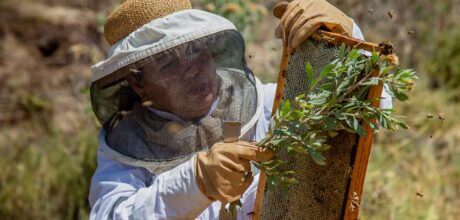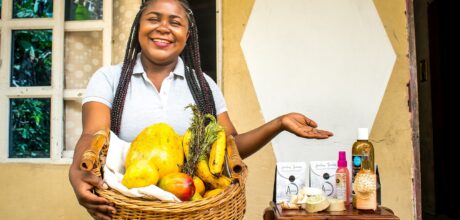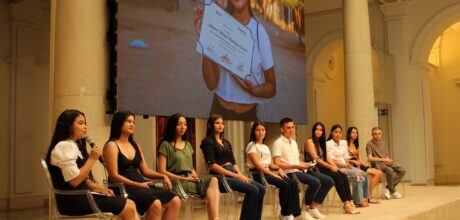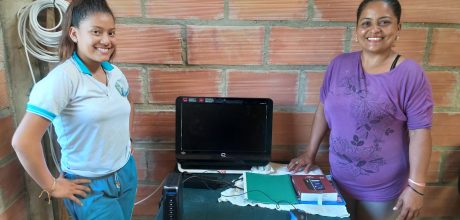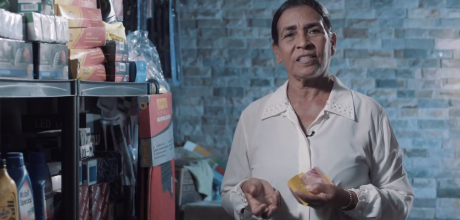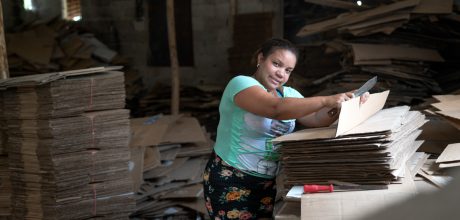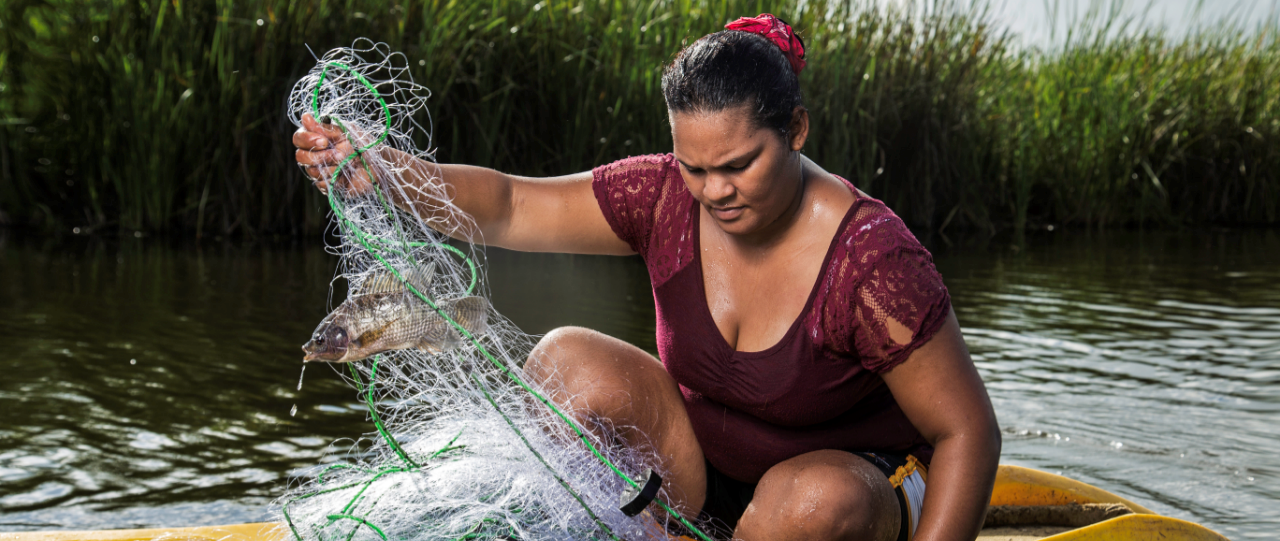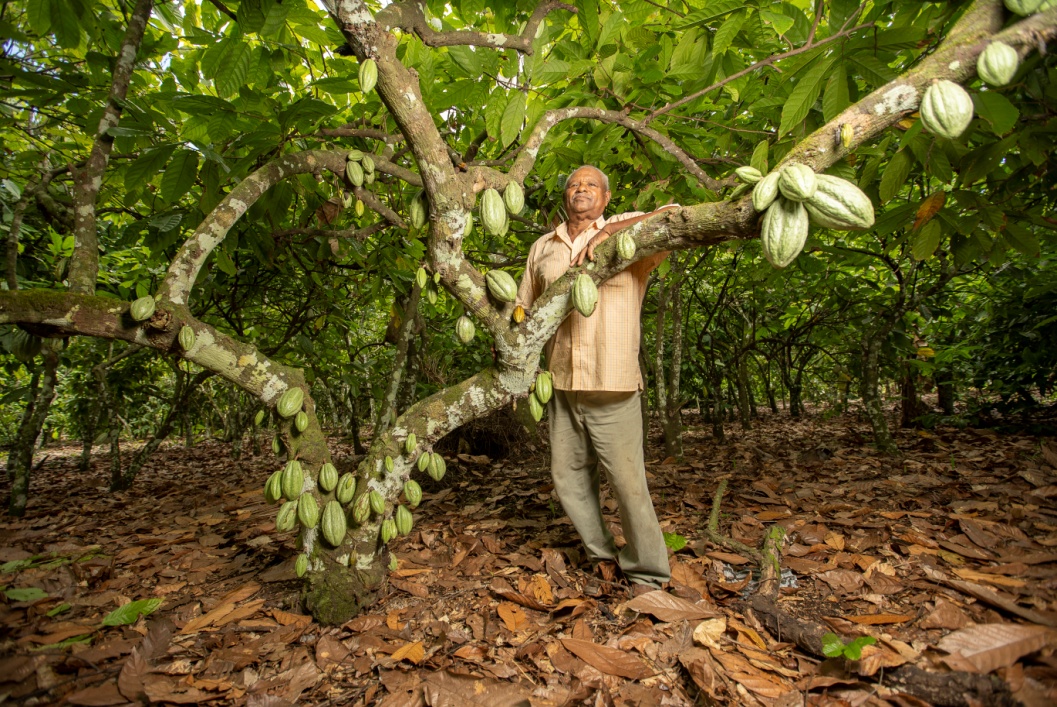20 years ago, Rosa Norambuena set her project in motion: a factory of handmade clay bricks, traditionally considered a masculine industry given the physical exertion it demands. This open-air activity starts with the brick maker scattering clay soil with a shovel and then mixes it with water to create a batter; afterwards, this mixture is thrown into a wheelbarrow to be deposited in the mixing table for casting. Once the bricks are sun-dried, they have to be baked in wood-fired oven that needs to be fed with logs for 30 hours straight. Finally, one has to prevent the bricks from getting wet once they are baked. This means that when it rains, someone has to cover them with a water-resistant awning, be it day or night. Yet despite all these, Rosa went ahead with her plan, undeterred.
As a result of her perseverance, fighting spirit and FE’s support, she was not only able to restore what she had, but she also improved her standards of living and started recruiting manpower
The demands of the trade did not stop this tenacious entrepreneur from fully engaging in it. This was how she became one of the first women to supply clay bricks in her commune, Cauquenes. Unfortunately, the 2010 earthquake seized everything away from her- her home and her enterprise. As she did not avail of the government aids, she had to ask for loans to rebuild her life. This was how she got to know Fondo Esperanza (FE) and immediately joined the village bank named “Santa Sofía with hope and effort”. As a result of her perseverance, fighting spirit and FE’s support, she was not only able to restore what she had, but she also improved her standards of living and started recruiting laborers when her business started to grow.
Her coping skills and her achievements as an entrepreneur led her to be one of the panelists during the celebration of the BBVA Microfinance Foundation’s 10th Anniversary in Madrid. Rosa knew that H.M. the Queen of Spain would be present and she was finding it difficult to maintain grace under such pressure. Nevertheless, the thought of representing her work, “as an entrepreneur, as a woman” was enough to make up for the anxiety.
It was her first time to travel out of the country, and she wished to share this experience with Hilda, her mother. In Madrid, many people awaited her testimony about the great things one could do with determination, vision and encouragement. Before her departure, Rosa took a final glance on the piles of bricks drying under the sun, aware that in a little more than 24 hours, she’d be contemplating a wholly different scene.
The trip was a long one, but she did not feel the fatigue until she started walking on the scorching pavements. Predictably so, the first thing she noticed about Madrid were its buildings. Until that moment, she had only seen modest structures in Cauquenes. Thus, her fascination for the city’s architectural sampling was perfectly understandable.

Rosa Norambuena with the managing director of Fondo Esperanza, Mario Pavón
The day of the celebration arrived and once she made the Queen’s acquaintance, she was finally able to calm herself down.
During the entrepreneurs’ panel, she highlighted two moments that turned her life around: the first one was the 2010 earthquake, which destroyed her source of income but at the same time gave her strength to rise above the occasion. The reconstruction needs made an inevitable boom in the demand for bricks, and this helped her get back on her feet. The second one was knowing about Fondo Esperanza, a financial entity that offered her not only economic but also emotional support, as well as financial education. According to her, at that time when she lacked all that she knows now, brick making was like “building castles in the air, without much future.” Needless to say, she knew how to grab the opportunity during both instances and simultaneously found a way to help her community.
Whenever she could, Rosa would always encourage everyone to push their endeavors forward despite the adversities. She knows what she speaks of: as women, she and her friends who are brick makers have been criticized and judged for working in an industry commonly occupied by men. In an anecdotic way, she described how one day, a man approached her obra (workshop) and commended the excellent quality of the bricks. He had a hard time believing that behind all of it was a woman. But he met Rosa and ended up transacting with her, not without expressing his amazement in seeing a woman remarkably run a business traditionally managed by men.
Where there were once doubts, now there are certainties
The Foundation is a firm defender of women’s empowerment. In Rosa’s case, a loan of 70 thousand pesos (105 USD) along with training from the School of Entrepreneurs, capacitated her to make decisions to improve her life and guarantee the success of her small brick factory. Where there were once doubts, now there are certainties. Before she only had dreams, but now she lives amidst real projects that bear undeniable impacts on people’s lives other than her own.
These projects are what allow her to move forward with stability: in summer, she produces bricks and in winter she would rely on the sales of coal to generate income. These seasonal trades provide her year-long livelihoods, but also give her time to rest. Upon her return to Chile, Rosa was planning to enjoy a few days of vacation, a well-deserved break to meditate on her recent experience and to continue outlining goals for the future.






